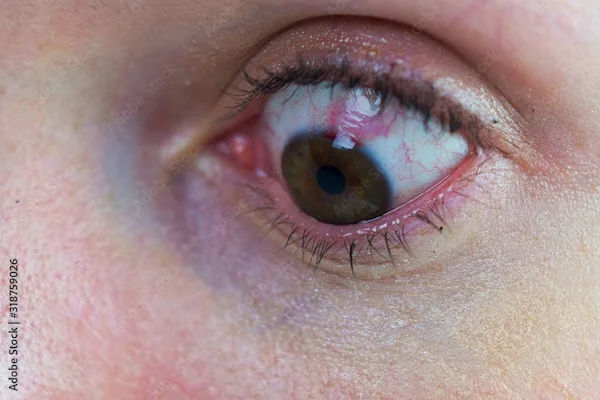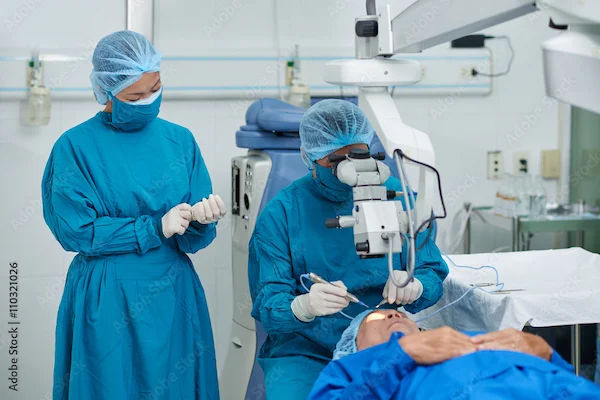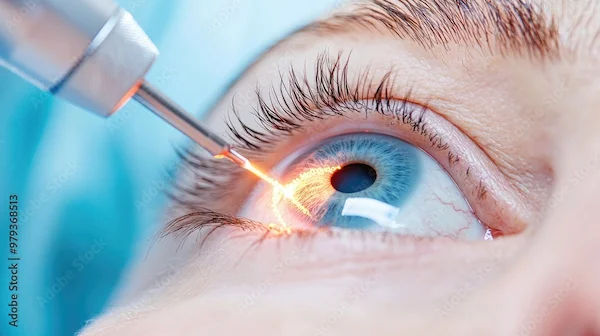Persistent Postsurgical Pain After Cataract Surgery
Experiencing discomfort after cataract surgery? Learn about persistent postsurgical pain, its causes, symptoms, and treatment options to support healing and protect your vision.

Written by Dr.Sonia Bhatt
Last updated on 15th Jul, 2025

Introduction
Cataract surgery is one of the most common and successful eye surgeries performed worldwide. It helps restore clear vision by replacing the cloudy lens with an artificial one. While most patients recover smoothly, some may experience persistent postsurgical pain even after the expected healing period. If you're dealing with discomfort long after your surgery, know that you're not alone, and there are ways to manage it.
What Is Persistent Postsurgical Pain After Cataract Surgery?
Persistent postsurgical pain (PPSP) refers to discomfort that lasts beyond the normal recovery period (usually more than three months). While mild irritation, dryness, or sensitivity to light are common in the first few weeks, ongoing pain may indicate an underlying issue that needs attention.
Consult Top Specialists for Personalised Health Advice
Possible Causes of Persistent Pain
Several factors can contribute to prolonged discomfort after cataract surgery:
1. Dry Eye Syndrome – Surgery can temporarily reduce tear production, leading to dryness, burning, or a gritty sensation.
2. Inflammation or Infection – Even with proper care, some patients may develop mild inflammation (iritis) or, rarely, an infection.
3. Increased Eye Pressure (Ocular Hypertension) – Some individuals may experience elevated eye pressure, causing aching or headaches.
4. Corneal Oedema – Swelling of the cornea can lead to blurry vision and discomfort.
5. Retained Lens Fragments – In rare cases, small pieces of the cataract may remain, causing irritation.
6. Nerve Irritation – Surgical instruments can sometimes affect tiny nerves in the eye, leading to lingering pain.
Symptoms to Watch For
While some discomfort is normal, consult your doctor if you experience:
Persistent pain that doesn’t improve with time
Redness, swelling, discharge or other signs of infection
Severe headaches or nausea that could indicate high eye pressure
Sudden vision changes like blurriness, flashes, or floaters
Managing and Treating Persistent Pain
The good news is that most cases of persistent pain can be treated effectively. Here’s what you can do:
1. Medical Treatments
Artificial Tears – For dry eyes, lubricating drops can provide relief.
Anti-inflammatory Eye Drops – If inflammation is the cause, steroid or NSAID drops may help.
Pressure-Lowering Medications – If high eye pressure is detected, medicated drops can reduce it.
Antibiotics – If an infection is present, antibiotic drops or oral medications may be prescribed.
2. Lifestyle and Home Care Tips
Avoid Rubbing Your Eyes – This can worsen irritation.
Wear Sunglasses – Protect your eyes from bright light and wind.
Stay Hydrated – Drinking enough water helps maintain tear production.
Use a Humidifier – If indoor air is dry, a humidifier can prevent further dryness.
Follow Post-Op Instructions – Stick to prescribed medications and follow-up visits.
When to Seek Help
If your pain persists despite home care or if you notice worsening symptoms, consult an eye specialist immediately. Early intervention can prevent complications and speed up recovery.
Final Thoughts
While cataract surgery is generally safe, persistent pain should not be ignored. Most cases are treatable with the right care. If you're experiencing discomfort beyond the usual recovery period, don’t hesitate to reach out to your doctor.
Need Help? If you're concerned about persistent pain after cataract surgery, you can book a consultation with an Apollo24|7 ophthalmologist for expert advice and personalised care.
Consult Top Eye Specialists
Consult Top Specialists for Personalised Health Advice
Dr. S Venkateswaran
Ophthalmologist
35 Years • MBBS, PGD (OPTHALMOLOGY)
Tiruvannamalai
Shiva Eye And General Hospital, Tiruvannamalai
Dr. Kakarla Roopa
Ophthalmologist
3 Years • MBBS MS Ophthalmology
Tirupati
Anna Gowri Hospital, Tirupati

Dr. Syed Saifullah Bokhari
Ophthalmologist
4 Years • MBBS, MS(Ophthalmology)
Bengaluru
Vasan Eye Care, Bengaluru

Dr. Balakrishna Balaka
Ophthalmologist
6 Years • MBBS, MS Ophthalmology
Visakhapatnam
Balakrishna eye clinic, Visakhapatnam
Dr. C. Ram Lingeswaran
Ophthalmologist
10 Years • MBBS, Dip (OPHTHALMOLOGY)
Madurai
Dr. Nainar hospital, Madurai
Consult Top Eye Specialists
Dr. S Venkateswaran
Ophthalmologist
35 Years • MBBS, PGD (OPTHALMOLOGY)
Tiruvannamalai
Shiva Eye And General Hospital, Tiruvannamalai
Dr. Kakarla Roopa
Ophthalmologist
3 Years • MBBS MS Ophthalmology
Tirupati
Anna Gowri Hospital, Tirupati

Dr. Syed Saifullah Bokhari
Ophthalmologist
4 Years • MBBS, MS(Ophthalmology)
Bengaluru
Vasan Eye Care, Bengaluru

Dr. Balakrishna Balaka
Ophthalmologist
6 Years • MBBS, MS Ophthalmology
Visakhapatnam
Balakrishna eye clinic, Visakhapatnam
Dr. C. Ram Lingeswaran
Ophthalmologist
10 Years • MBBS, Dip (OPHTHALMOLOGY)
Madurai
Dr. Nainar hospital, Madurai
.webp)
_0.webp)


